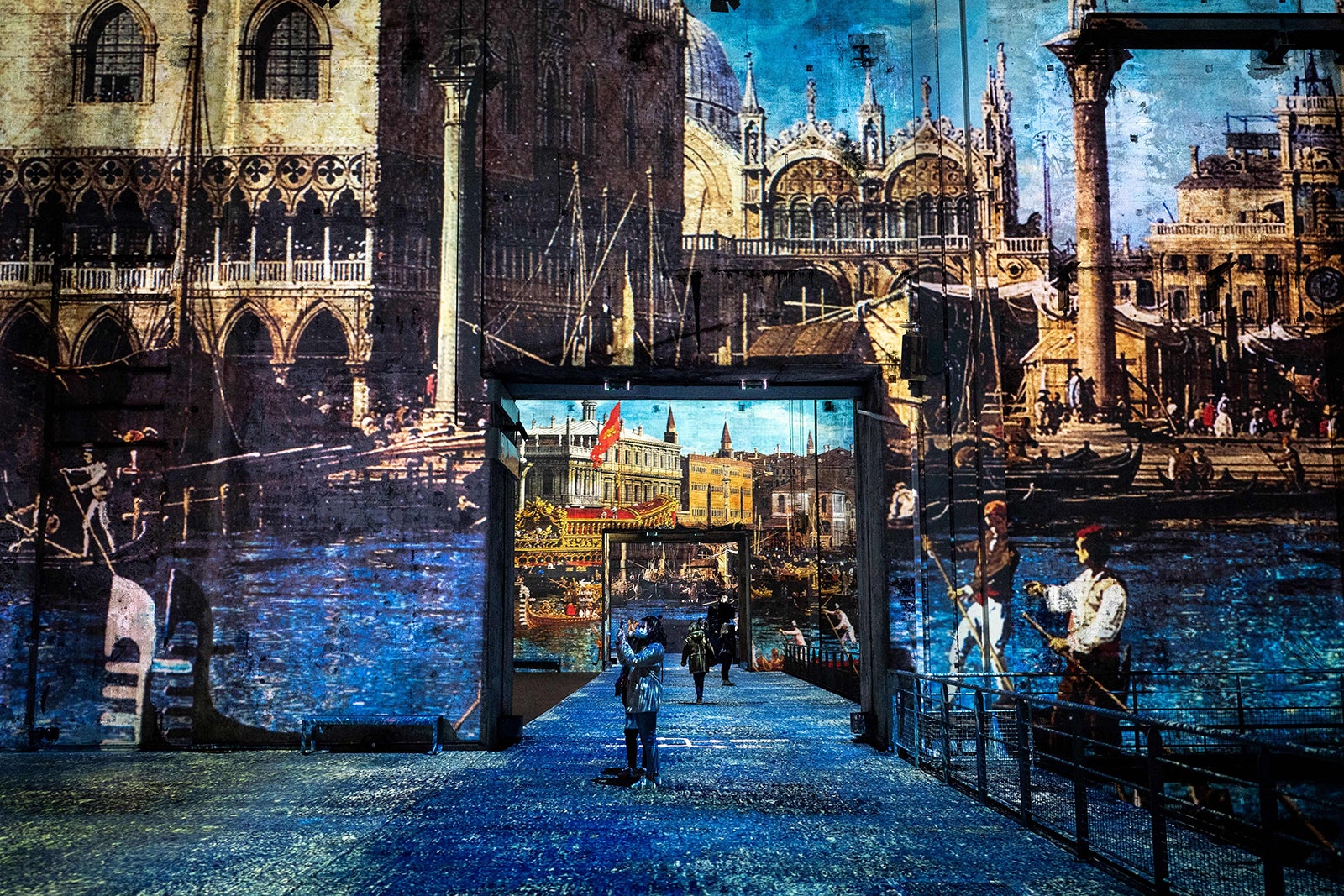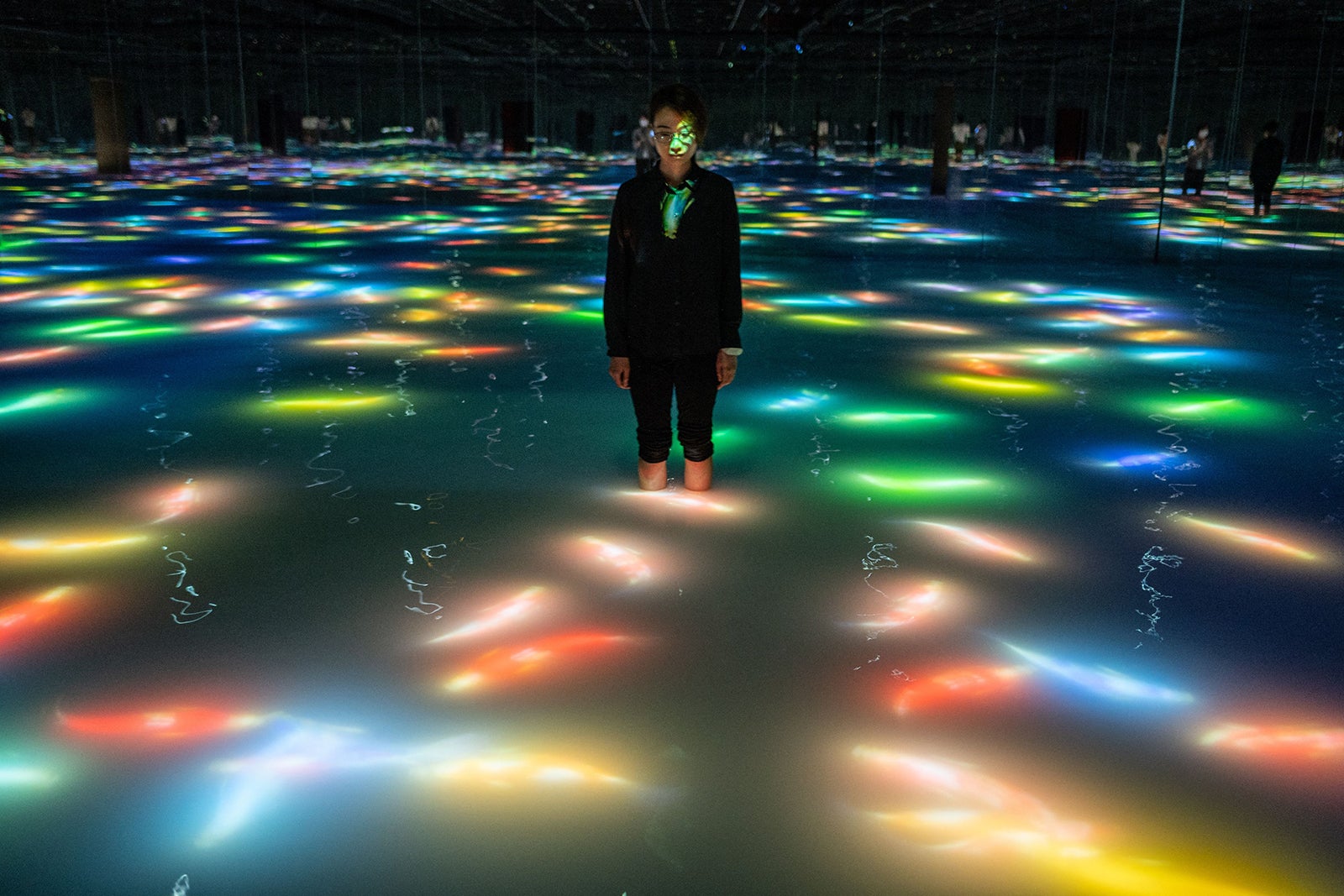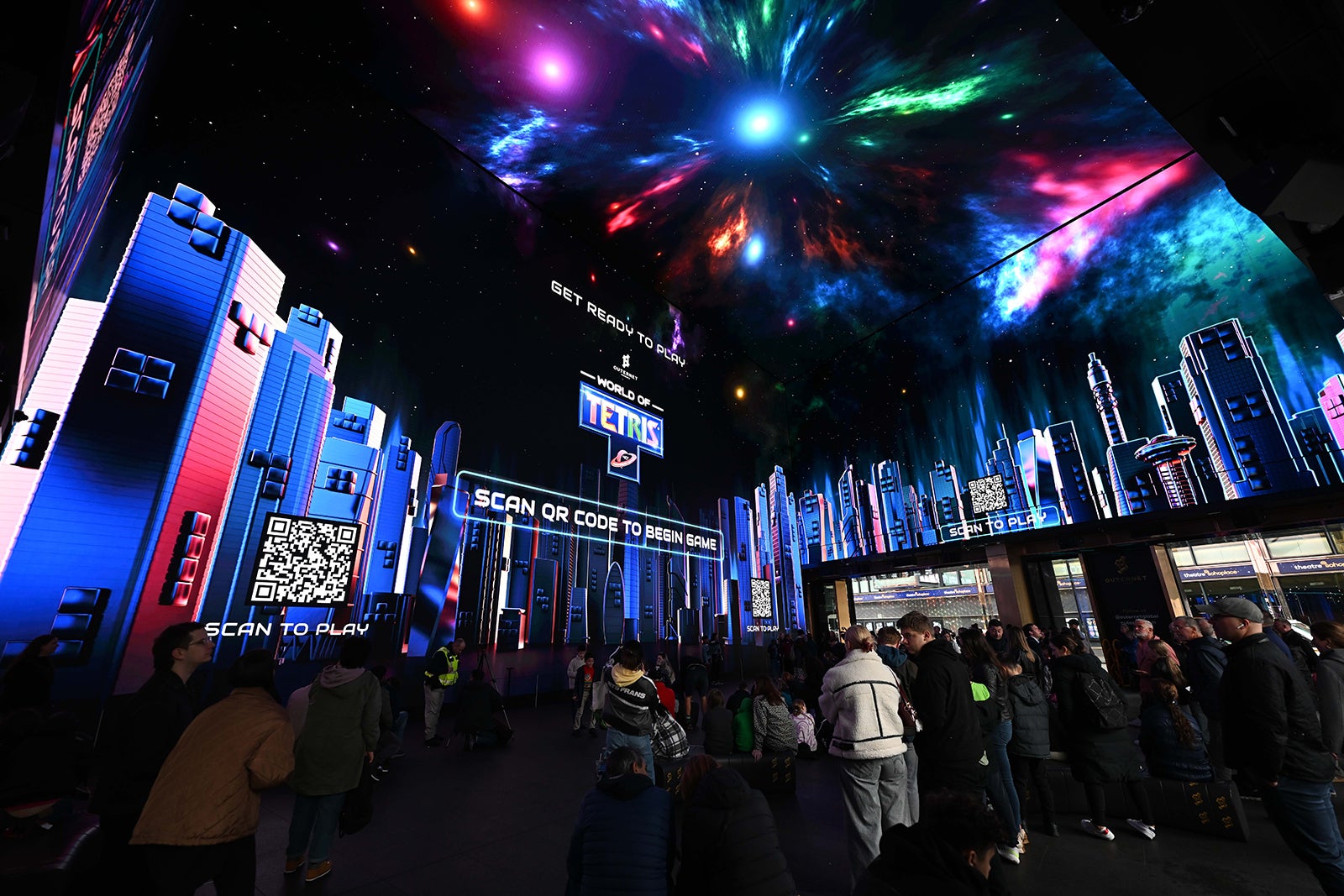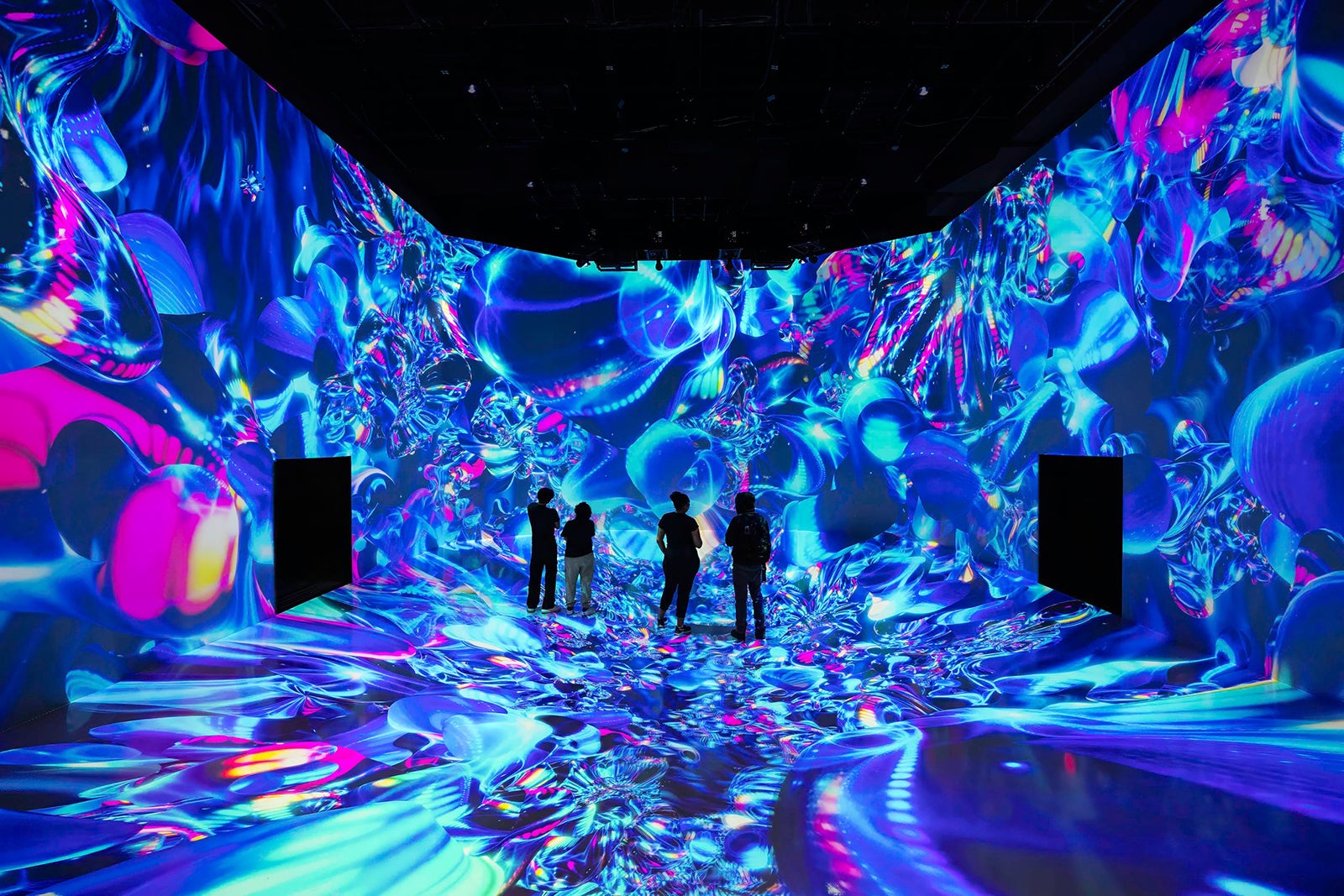There has rarely been a trend in the art world that caught on as quickly as immersive digital art museums.
Though it may not have been the first permanent space dedicated to digital art, when Paris’ Atelier des Lumieres opened in April 2018, the trend caught fire. When I visited in September of that year, everyone from my son’s tween friends to flight attendants on my transcontinental flight recommended a visit to the repurposed steel refinery in the far reaches of the 11th Arrondissement. Images of Gustav Klimt’s gold and jewel-toned paintings floated across the massive warehouse-like space and were choreographed to classical music from the same era (think Mahler, Wagner, Strauss). It was like nothing I had ever seen.
Six years later, there are now more than 100 permanent digital art museums and traveling exhibitions around the globe, with more scheduled to open in 2025. Some of these immersive art museums, like Atelier des Lumieres, bring famous works of art to life. Others feature original digital art and are more avant-garde, responding to touch and physical presence. And some of the venues, including a former submarine base, are part of the experience.
That doesn’t mean, however, that they’re all created equal. For every truly memorable experience, there are some that feel like they’ve been thrown together just to take advantage of the trend (case in point, a Frida Kahlo digital exhibition I bought pricey tickets to that turned out to be in a literal garage on the outskirts of Washington, D.C.).
How to tell the best from the rest? Start with these TPG-vetted options below.
Bassins des Lumieres, Bordeaux, France

Set in a historic WWII submarine base in Bordeaux, Bassins des Lumieres leans into its aquatic history with vast pools of water reflecting stunning digital art projections. (Fun fact: It is five times the size of Atelier des Lumieres, its sister museum in Paris.) This unique setting enhances the visual experience, with artworks from masters like those in the current exhibit “Vermeer to Van Gogh” (through Jan. 5) reflecting and rippling across the surfaces. It’s a fun fusion of art and innovation, and watching the wall, floor and ceiling-covering projections in the vast space with accompanying audio is captivating. There are five spaces here with exhibitions, including the great Dutch masters and the kid-friendly “The Little Prince: The Immersive Odyssey” every afternoon through the end of the year.
TPG tip: Culturespaces, the French foundation behind Bassins and Atelier des Lumieres, has also opened digital art spaces in New York City, Seoul and Amsterdam. Its next opening will be in Hamburg, Germany.
The Lume Indianapolis
Let’s face it, not many people hear “cutting-edge art” and immediately think “Indiana.” But The Lume Indianapolis — a permanent fixture of the Indianapolis Museum of Art at Newfields comprising the museum’s entire fourth floor — is truly special. Lume’s exhibitions are created by Melbourne, Australia-based company Grande Experiences, which has been creating immersive shows for 15 years. The current exhibit, “Dali Alive,” runs through Jan. 31 and features the Spanish artist’s trippy works, including melting clocks.
TeamLab Borderless: Mori Building Digital Art Museum, Tokyo
If you spend any time on TikTok or Instagram, teamLab Borderless in Tokyo has probably taken over your feed at some point with its sparkling crystal infinity room. Borderless relocated to a new home in early 2024 in the modern Mori Building in Azabudai Hills. (Tip: The building itself has a fabulous, and free, observation deck.) The modern skyscraper neighborhood is between Roppongi and Toranomon Hills, near Tokyo Tower (about 20 minutes by train from Shibuya).
The entire 110,000-square-foot space is an immersive environment where visitors can freely interact with the art, which evolves based on your movements. You can explore at your own pace and don’t need to follow a set path, which makes it feel slightly more relaxed than some other digital museum experiences (although make no mistake, this will be crowded). Tickets usually sell out in advance, especially on weekends; plan on buying tickets around three weeks in advance of your visit.
Since the artworks continuously adapt and transform, no two experiences are alike, so this is a fun one to make a return visit to. It’s a great space for kids, as well as adults, especially the “fish” room where you can create a drawing that becomes part of the digitized seascape “swimming” around the walls. Be sure to keep an eye out for the En Tea House where your tea continuously “blossoms” while it’s in your cup.
TPG tip: If you don’t make it to Tokyo, teamLab is opening new museums soon in the German port city of Hamburg and in Abu Dhabi.
Related: I booked a family trip to Japan with a tour operator; here’s why I would do it again
TeamLab Planets, Tokyo

Also in Tokyo, teamLab Planets, which opened in July 2018, has a distinctly different feeling from Borderless. Planets really wants visitors to engage with art on a physical level, and for this one, you’ll walk through a series of environments where you come in contact with objects, including many water-filled floors (yes, it’s real, and yes, you’ll have to go barefoot through the building). You’ll follow a guided path here, and many rooms have time limits, but the digital floating universe of flowers, interactive upside-down flower garden, giant sphere room and infinite crystal universe with lights are all worth a visit.
Planets is located on the manmade entertainment island of Odaiba, which has, among other things, a replica of the Statue of Liberty, a giant Gundam robot, a science museum and several shopping malls. It’s about a 30-minute train ride between the two teamLab locations, and Planets is about 45 minutes from Shibuya. As with Borderless, you should plan on purchasing tickets several weeks before you want to visit.
TPG tip: TeamLab also has dozens of single installations around the world, too. There’s a “fish” room in The Newark Museum of Art in New Jersey, which is super affordable and easy to reach from New York City.
Superblue Miami
Superblue Miami, located in the Allapattah neighborhood, feels a bit more like a curated museum than some of the single-subject digital art experiences that define other immersive sites. The space showcases large-scale, interactive artworks by contemporary artists, making it a good option for art lovers curious about exploring the intersection of technology and creativity.
There are also elements from teamLabs here, which partnered with Superblue on the interactive projected flower walls that shift and move when you touch them, and the viral “Massless Clouds” space, a more visceral experience akin to walking through a room filled with bubbles and smoke. Superblue’s commitment to showcasing emerging artists and innovative practices means that you’ll definitely find something here you’ve never seen before.
Outernet, London

More people visited Outernet, a digital museum in London’s West End, than the British Museum last year, according to The Times. It’s also completely free, which is unique in the digital art world. Located in the NOW Building just south of the Tottenham Court Road tube station, Outernet comprises three different spaces to explore, including a room with a 360-degree immersive screen integrating music and augmented reality and another that has wall-size interactive video games (the largest game of Tetris in the world just debuted). What makes Outernet unique is its focus on blending entertainment with art, frequently hosting live events and collaborations including upcoming ones with both NASA and British artist Hannah Nijsten.
Related: The 25 best hotels in London
Ars Electronica Center, Linz, Austria
Ars Electronica Center feels a bit like AI is running the show — and that’s how the digital museum likes it. There’s a futuristic vibe here, with computer-driven displays of robotics, music and even neuroscience. There are, however, the immersive type of displays common to other digital art museums, including “Deep Space 8K,” which uses high-def lasers and 33 million pixel resolution to create images of everything from the planets of the solar system to Notre Dame. And if your schedule corresponds with the annual Ars Electronica Festival, it’s worth attending (the next one is scheduled Sept. 3-7, 2025). Past performances have included Laurie Anderson, electromagnetic dance shows, choreographed wrestling and electronica DJs.
Related reading:




